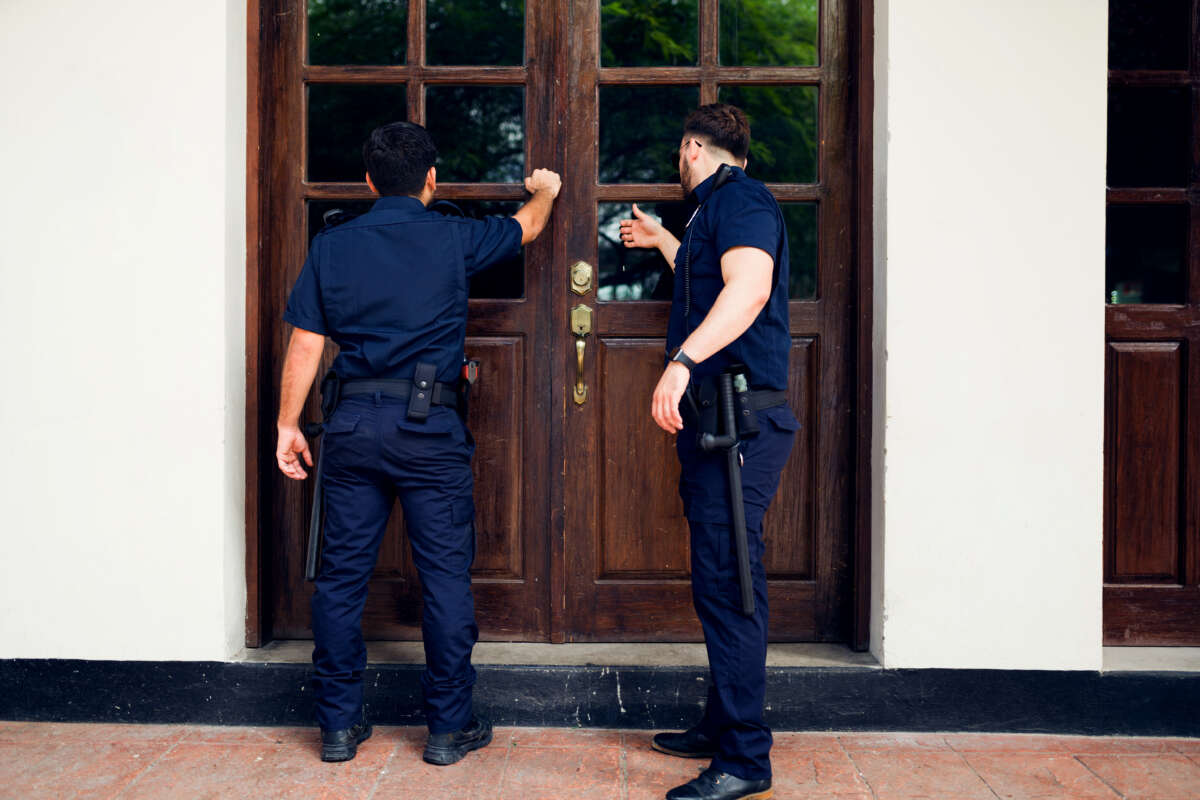Recent reports have revealed that the Detroit Police Department wrongly arrested a pregnant Black woman for a crime she did not commit after she was misidentified by the city’s facial recognition software.
The woman, Porcha Woodruff, was arrested at her house in February and held for 11 hours at the Detroit Detention Center, during which time she had contractions.
The Detroit Police Department makes about 125 facial recognition searches each year, but fails to correctly identify people 96 percent of the time. While the Detroit police department has a policy that facial recognition identification can only be considered a lead and can’t be used as the sole basis for an arrest, Detroit police have arrested at least three people who were misidentified by the software since the launch of the program, Project Green Light.
“It’s deeply concerning that the Detroit Police Department knows the devastating consequences of using flawed facial recognition technology as the basis for someone’s arrest and continues to rely on it anyway,” Phil Mayor, senior staff attorney at the American Civil Liberties Union (ACLU) of Michigan, said in a statement. “As Ms. Woodruff’s horrifying experience illustrates, the Department’s use of this technology must end.”
The city began using the facial recognition software in 2017 and has since installed more than 500 surveillance cameras across Detroit. In July 2019, Michael Oliver was misidentified by the technology for stealing and throwing a teacher’s cellphone. In January 2020, Robert Williams was flagged by the facial recognition software as a shoplifting suspect. Williams was forced to sleep on a cement floor after being held for more than 30 hours in an overcrowded jail. Both misidentification incidents have prompted lawsuits against the city.
All three known misidentification arrests in Detroit targeted Black residents. Civil liberties groups have warned for years that the use of facial recognition technology will exacerbate racial inequalities in policing after multiple studies showed that the software misidentifies people of color more frequently than white people.
“We have leveraged facial recognition surveillance against Black residents, despite the fact that the technology is racially biased and being banned in predominantly white cities,” Tawana Petty, the national organizing director for Data 4 Black Lives, said at a Detroit City Council meeting in 2020.
Research conducted by criminal justice experts Thaddeus L. Johnson and Nastasha N. Johnson demonstrates that police use facial recognition technology to arrest Black people at disproportionately high rates. “We believe this results from factors that include the lack of Black faces in the algorithms’ training data sets, a belief that these programs are infallible and a tendency of officers’ own biases to magnify these issues,” the researchers explained in Scientific American.
As a result of racial biases in policing, Black people are overrepresented in mugshot databases, which skews the AI technology. “Consequently AI is more likely to mark Black faces as criminal, leading to the targeting and arresting of innocent Black people,” the researchers stated.
Rep. Rashida Tlaib (D-Michigan) introduced legislation in March that would ban the use of facial recognition technology on the federal level. The Facial Recognition and Biometric Technology Moratorium Act would also withhold money from state and local police departments that continue to use the technology, which would have a substantial impact on the Detroit Police Department.
“Facial recognition is a racist technology that is being used in our neighborhoods to invade privacy, surveil, and criminalize,” Tlaib said. “In the City of Detroit, facial recognition has already falsely identified our residents, making them suspects in crimes they did not commit. This technology is making us less safe.”
